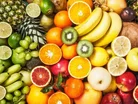DNA technology to detect disease in fruit

Canada is investing in DNA technology that will determine whether fruit plants are infected by viruses. Canada’s agriculture minister Lawrence MacAulay announced that the Canadian Food Inspection Agency will lead two different investigations using DNA technology to save time and money getting fruit to market without disease. MacAulay claims that the new technology could have massive benefits to the wider economy.
The two projects are expected to cost $500,000, with funding coming from the Canadian Food Inspection Agency, the industry and research group. One project will cut down quarantine times of seeds, cuttings and bulbs imported into Canada by two years, through testing. The second project will concentrate on testing strawberries – the market of which is valued at $17mn – for viruses, in order to reduce the time it takes to get to the shops, helping to boost both trade and economic competitiveness in the $240 million Canadian fruit tree industry.
Related stories:
- Agrana Fruit Mexico
-
Holchem launches high-level Listeria management training course
- [INFOGRAPHIC] World Health Organization Asks: How Safe Is Your Food?
Traditionally, multiple tests for viruses are required before exporting strawberry plants to foreign markets. This project however will test for multiple viruses in one single test.
MacAulay said: “Together with provincial partners and industry, our government is making the investments in innovative science that enables agriculture to be a leading growth sector of Canada's economy. Together we can help meet the world's growing demand for high-quality, sustainable food and help grow our middle class.”
The projects are one half of a collaborative program with Genome British Columbia; Genomics being the science that studies genetic (DNA and RNA) sequences and the complexity of their multiple interactions, allowing scientists to identify DNA and RNA "fingerprints" specific to known organisms, such as plants and viruses. The genomic tests will look for ribonucleic acid (RNA), a molecule similar to DNA that most plant viruses use to hold their genetic information, thus alerting inspectors to their unsuitability.
- Walmart Canada invests $175mn to modernise stores and create omnichannel experienceRetail
- Kraft Heinz Canada buys sustainable coffee firm Ethical Bean CoffeeDrink
- Danone, Hain Celestial and others launch Plant-Based Foods of Canada organisationFood
- The Bel Group to invest $87mn to build its first Mini Babybel cheese factory in CanadaFood



